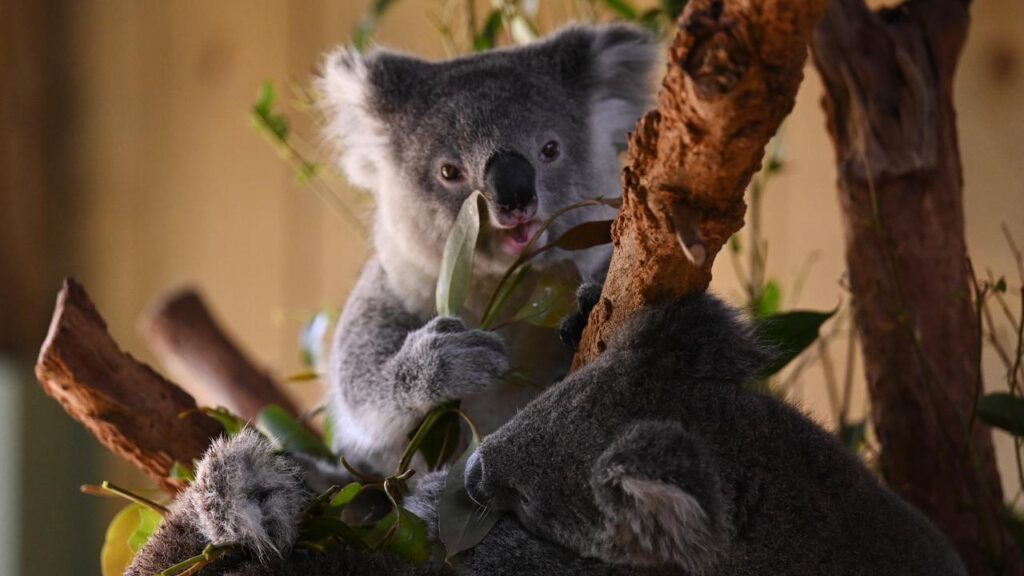Massive koala park plan to give logging the chop
Jack Gramenz and Aaron Bunch |

A state government has stared down a lobbying campaign from logging advocates and will push ahead with plans for a large-scale koala national park while hitting pause on tree-felling.
Critics say the move will hammer jobs and undermine the nation’s timber supply when harvesting within the proposed park’s boundaries is paused from Monday.
The NSW government on Sunday revealed its long-awaited plan for the Great Koala National Park, an election promise to conserve the marsupial’s habitat.

The plan will reserve 176,000 hectares of state forest – a far larger footprint than the logging industry wanted – to be connected with existing national parks to create a 476,000ha reserve, protecting more than 12,000 koalas in the state’s north.
“We’ve decided to go for the largest option and there’s a simple reason for that,” Premier Chris Minns told reporters.
“We are faced with the situation where koalas will go extinct in the wild by 2050 unless we make this decision.”
The protected area also supports about 36,000 greater gliders and more than 100 other threatened species.
Conservationists applauded the decision, with the Australian Climate and Biodiversity Foundation saying it was a breakthrough that could pioneer a new model for regional employment.
“This is one of the largest decisions in support of forest conservation in NSW in a generation,” chair Ken Henry said.

“Furthermore, the opportunity to generate high-integrity carbon credits shows how environmental conservation can deliver serious economic benefits.”
The NSW National Parks and Wildlife Service will receive an additional $60 million in funding to support the park’s establishment, on top of an $80 million injection in 2023.
Federal authorities are also assessing whether the park could generate carbon credits, which the NSW government said were needed to fund its creation.
A logging moratorium in the included state forests would impact six out of 25 timber mills in the region, affecting about 300 jobs, the government said.
Professional association Forestry Australia, whose members include forest scientists, managers and growers, slammed the plan, saying it was not science-led.
“The government has missed the chance to maximise outcomes for koalas and communities,” resident Michelle Freeman said.

“The state government’s decision risks repeating past mistakes where a shift away from active and adaptive management has led to declines in native species, including koalas.”
The Australian Workers’ Union and the Timber, Furnishing and Textiles Union also condemned the park decision, saying it would devastate regional communities, cost hundreds of jobs and risk thousands more across the state’s $3 billion hardwood timber industry.
AWU NSW secretary Tony Callinan said it was a betrayal of working families.
“The Industry Advisory Panel, which the government itself established, recommended 37,000ha as a balanced approach that would protect koalas while preserving jobs,” he said.
“Instead, the government has gone nearly five times larger.”
Mr Minns said the government had to choose a bigger park option.

“A smaller-sized park would be the worst of all worlds,” he said.
“It would have an impact on the industry and it wouldn’t protect and preserve the threatened species.”
Businesses impacted by the plan will receive financial assistance to continue to pay staff salaries and cover costs.
“But it would be disingenuous to say that there’s no impact – there is and there will be transition packages in place,” Mr Minns said.
Workers and their families will also be offered mental health, financial and legal counselling services.
The park is expected to boost interstate and international tourist numbers to NSW.
AAP